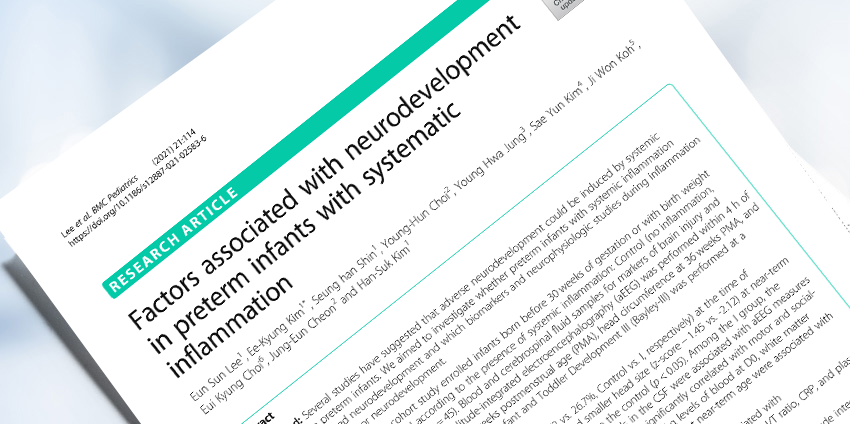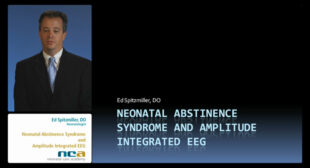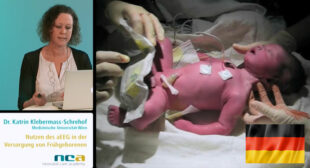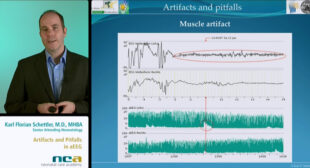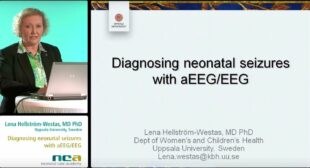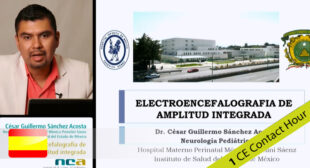Factors associated with neurodevelopment in preterm infants with systematic inflammation
Several studies have suggested that adverse neurodevelopment could be induced by systemic inflammation in preterm infants. This prospective study examined infants <30 weeks gestation and BW <1250g. Infants were grouped according to the presence of systemic inflammation. . Blood and cerebrospinal fluid samples for markers of brain injury and inflammation were collected and amplitude-integrated electroencephalography (aEEG) was performed within 4 h of septic workup and aEEG evaluated again at 35 weeks PMA.
Systemic inflammation induced by clinical infection and NEC are associated with neurodevelopmental impairment in preterm infants. Preterm infants who experienced systemic inflammation
in the NICU had smaller head sizes and abnormal functional brain maturation at near-term age, more WMI at discharge, and had poor neurodevelopment at a CA of 18 months.
This study again demonstrates that aEEG is a very useful tool in the NICU for predicting neurodevelopmental outcomes in preterm infants.
Read the full text of this article


